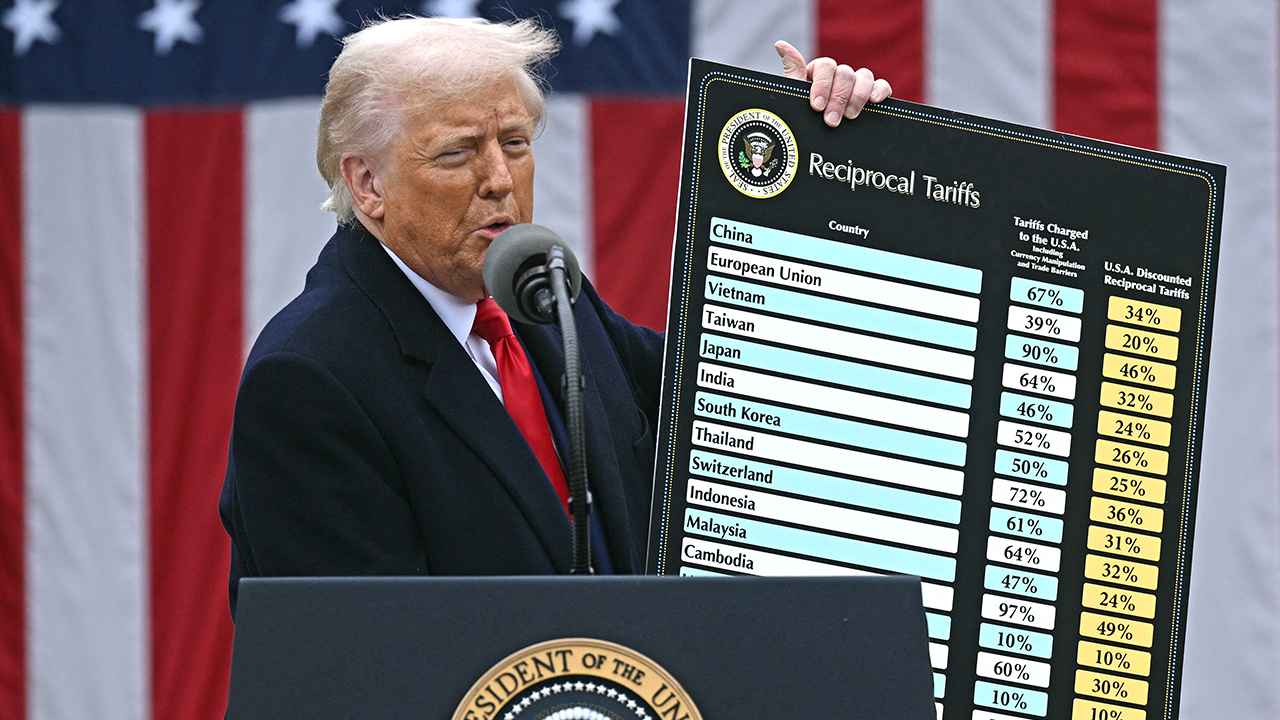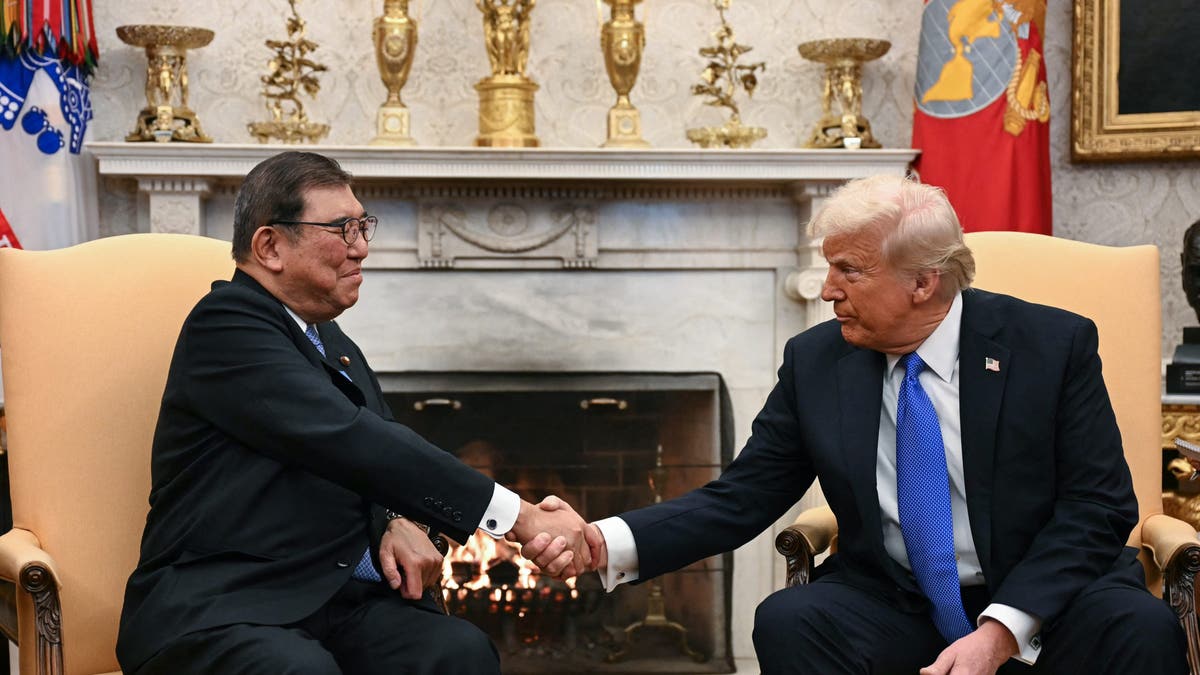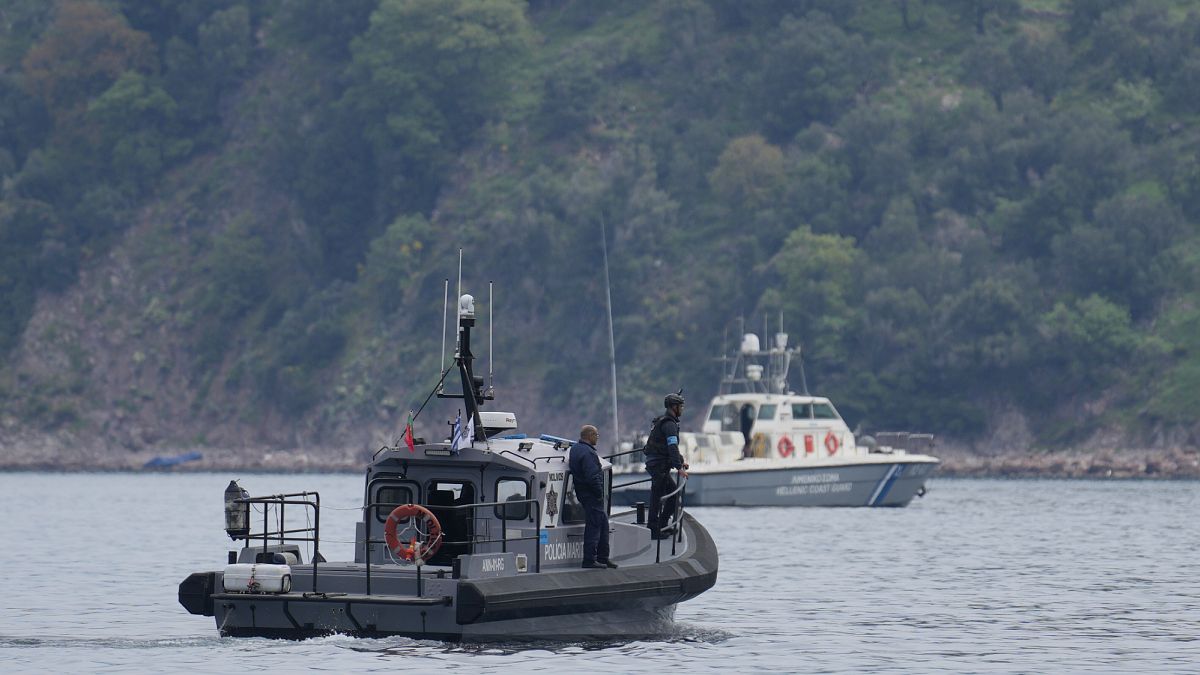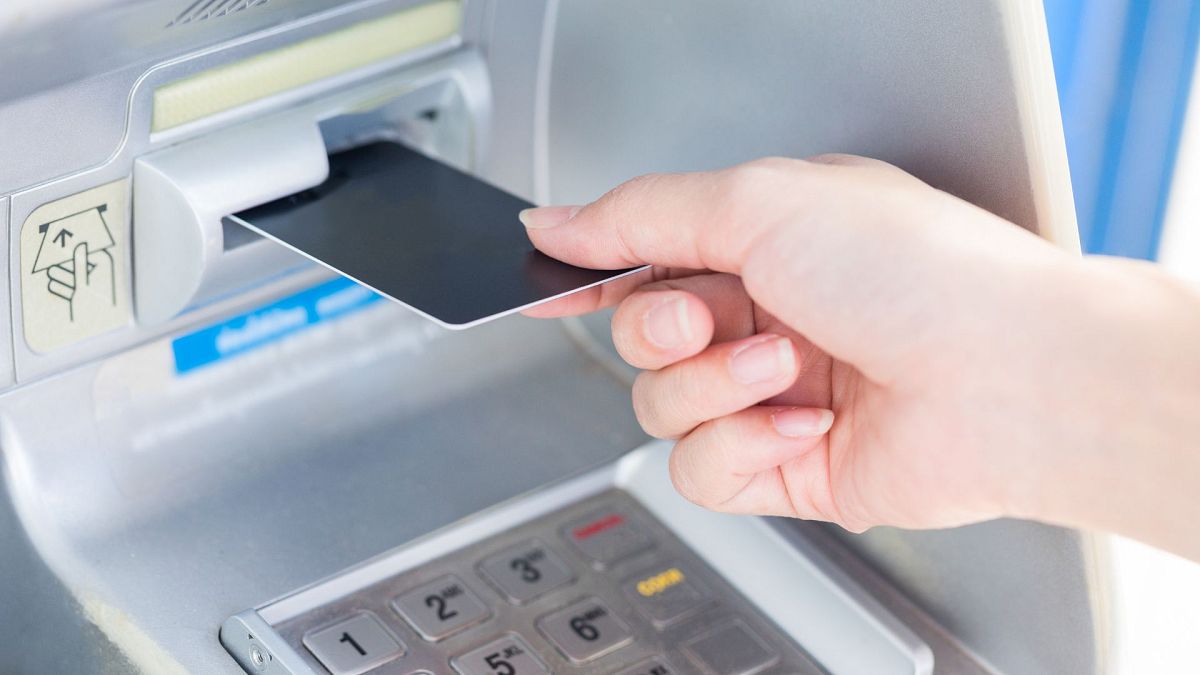World
Cleveland Browns tight end David Njoku burned on face, arm in home accident while lighting fire pit

CLEVELAND (AP) — Cleveland Browns tight end David Njoku suffered burns to his face and arm in an accident at home while lighting a fire pit.
Njoku was added to the injury report on Saturday and listed as questionable for Sunday’s home game against the Baltimore Ravens.
It’s not immediately known when the accident took place or the severity of Njoku’s injuries. However, his agent Malki Kawa, posted on social media that the 27-year-old tight end “is OK.” Kawa thanked “everyone for reaching out.”
Njoku, who is in his seventh season with Cleveland, has 10 catches for 92 yards this season. He’s a solid blocker and coach Kevin Stefanski noted that Njoku has been a major contributor on several big plays through three games.
Njoku’s injury further complicates things for the Browns (2-1), who could be without starting quarterback Deshaun Watson against the Ravens. Watson was limited in practice this week with a shoulder injury and is also questionable.
If Watson can’t play, rookie Dorian Thompson-Robinson, a fifth-round pick from UCLA, will make his first NFL start. Thompson-Robinson, who had a strong training camp and preseason, took the majority of snaps with Cleveland’s starting offense this week.
The Browns elevated tight end Zaire Mitchell-Paden from the practice squad in case Njoku is inactive.
Quarterback P.J. Walker was also brought up from the practice squad as insurance for Watson’s situation.
___
AP NFL: https://apnews.com/hub/nfl

World
How Trump’s Tariffs Could Hobble a U.S. Battery Boom

The sweeping tariffs that President Trump announced on Wednesday could hobble the use of giant batteries that energy companies are increasingly installing to help them tap more wind and solar power and make the broader electric grid more reliable.
Over the past five years, grid batteries have become one of the biggest growth industries in the U.S. energy sector. In states like Texas and Arizona, companies have been installing stacks of lithium-ion cells the size of shipping containers. They can soak up excess wind and solar energy and save it for when it’s needed. In California, the use of batteries to store solar power for the evening hours has helped utilities reduce the amount of natural gas that is burned.
Yet the majority of America’s lithium-ion batteries are still imported, and 69 percent of those imports came from China in 2024, according to BloombergNEF. Mr. Trump’s latest round of tariffs, when combined with earlier trade moves, will impose a 64.5 percent tax on grid batteries from China, and that rate would rise to 82 percent next year.
“This will throttle U.S. energy storage deployment,” Jason Burwen, vice president of policy and strategy at the battery developer GridStor, wrote in a social media post. “Bad for business, bad for grid reliability.”
Energy companies were expected to install a record 18,200 megawatts of grid battery capacity this year, enough to store the entire output from 18 large nuclear reactors for a few hours, according to the U.S. Energy Information Administration. Together, batteries, wind and solar power were expected to make up 93 percent of capacity added to the grid.
Those batteries help address renewable energy’s biggest weakness: the fact that the wind and sun aren’t always available. In states that rely heavily on solar power like California and Texas, a boom in battery installations has helped reduce the risk of blackouts during the hot summer months by working together with gas plants to provide power when demand spikes.
But batteries aren’t just useful for adding more renewables: Utilities also use them to smooth out small disruptions in the flow of electricity, say, if a power plant unexpectedly tripped offline. Or, they can be used to reduce congestion on transmission lines.
Companies have largely been installing grid batteries because the price of lithium-ion technology has plummeted (the batteries are similar to those found in electric cars). Tariffs could reverse that trend.
“Batteries are the only major clean tech sector where imports still overwhelmingly come from China,” said Antoine Vagneur-Jones, head of trade and supply chains at BloombergNEF. “So the impacts of these tariffs are going to be a lot bigger for batteries than they are for other technologies.”
In recent years, the United States has started to build up a domestic battery supply chain. After the 2022 Inflation Reduction Act passed, the Biden administration poured billions of dollars into new battery factories and offered tax credits for both domestic manufacturers and the use of batteries in both grids and electric vehicles.
But many of those factories face an uncertain future now that President Trump and Republicans in Congress are looking to roll back a variety of clean energy policies.
Teasing out the precise effects of tariffs on the energy mix is complicated, Mr. Vagneur-Jones said. Right now, batteries often compete with natural gas plants as a technology to fill in the gaps left by fluctuating wind and solar power.
But it won’t always be so easy for many power companies to increase their use of gas: There is a lengthy global backlog for new gas turbines, and a company trying to build a new gas plant from scratch today may have to wait until 2030 or beyond. The oil and gas industry is also being hurt by new tariffs on steel and aluminum, which can affect everything from the steel pipe used to line new gas wells to power transformers.
“It’s always tempting to say these tariffs are good for fossil fuels, bad for clean energy,” Mr. Vagneur-Jones said. “But I think it’s just bad for everyone.”
World
Some countries targeted by Trump tariffs seek negotiations, China says 'no winners in trade wars'

World leaders across the globe are reacting to President Donald Trump’s “Liberation Day” tariff announcements, with some expressing disappointment and others making threats. On Wednesday, the president announced a baseline tariff of 10% on imports, in addition to reciprocal tariffs based on what each nation imposes on U.S. goods.
Trump believes these tariffs will incentivize foreign investment in the U.S. and spur domestic job growth.
While several U.S. allies articulated their frustration with the tariffs, they also expressed a lack of interest in launching trade wars. Many called for negotiations with the U.S. for new trade agreements.
President Donald Trump delivers remarks on reciprocal tariffs during an event in the Rose Garden entitled “Make America Wealthy Again” at the White House on April 2, 2025. (Getty Images)
TREASURY SECRETARY BESSENT TELLS COUNTRIES NOT TO RETALIATE AFTER SWEEPING ‘LIBERATION DAY’ TARIFFS
European Commission President Ursula von der Leyen called the tariffs a “major blow to the world economy.” Von der Leyen said in a statement that there would be “countermeasures,” though she did not specify what they would entail.
Meanwhile, China’s Foreign Ministry said that “there are no winners in trade wars and tariff wars,” according to the Associated Press (AP).
Additionally, according to Reuters, Beijing is also planning to take “countermeasures.” Trump has taken an especially tough approach to China, which was already hit with a 20% tariff earlier this year. China will now face a 34% reciprocal tariff in addition to the 10% baseline imposed on all listed nations.

Trump shakes hands with Japanese Prime Minister Shigeru Ishiba in the Oval Office of the White House on Feb. 7, 2025. (Getty Images)
FRANCE ASKS US TO BE ‘COOPERATIVE’ INSTEAD OF ‘CONFRONTATIONAL’ FOLLOWING TRUMP’S ‘LIBERATION DAY’ TARIFFS
Japanese Prime Minister Shigeru Ishiba said the tariffs would have a “great impact” on U.S.-Japan relations and the global economy, according to the AP. He vowed that the Japanese government would work to “decisively protect people’s lives, jobs and industries.”
Despite being subject to one of the lowest reciprocal tariffs at just 10%, Australian Prime Minister Anthony Albanese said his country would negotiate with the Trump administration to remove the tariffs.
“We will not join a race to the bottom that leads to higher prices and slower growth,” Albanese said, according to Reuters.
Canada and Mexico are exempt from the reciprocal tariffs for now, but they face a 25% tariff on goods, with Canada also being slapped with a 10% energy tariff. While Canadian Prime Minister Mark Carney vowed to “fight these tariffs with countermeasures,” Mexican President Claudia Sheinbaum said her country would announce a “comprehensive program” on Thursday, according to Reuters.

Britain’s Prime Minister Keir Starmer and Trump speak during a joint press conference in the East Room at the White House on Feb. 27, 2025. (Carl Court/Pool Photo via AP)
When speaking to reporters, U.K. Prime Minister Keir Starmer did not criticize Trump, rather he said that the U.S. president was acting on “his mandate.” However, he also said that “nothing is off the table.” The prime minister assured that his government is working to make “an economic prosperity deal” with the U.S
Israeli Prime Minister Benjamin Netanyahu announced on Tuesday that his country would preemptively lift all tariffs on U.S. goods. However, Trump still announced a 17% reciprocal tariff on Israel. Israeli Finance Minister Bezalel Smotrich said his office was “analyzing the implications for the economy.” Smotrich also said that he would meet with the Finance Ministry to discuss possible responses.
World
Seven dead after migrant boat capsizes near Greek island of Lesbos

At least seven people, including two children, have died after a boat carrying migrants from Turkey to a nearby Greek island capsized, Greece’s coast guard has said.
A search and rescue operation off the northern coast of Lesbos recovered the bodies.
The coast guard said 23 people have been rescued.
Reporting on what appeared to be the same sinking, Turkish media said the incident was attended by the Turkish coast guard after a rubber dinghy sank in the Aegean Sea between the Turkish mainland and Lesbos.
Those rescued were taken to a hospital and the search continued, the state-run Anadolu news agency said.
Weather in the area was reported to be good and it was unclear what caused the boat to overturn early on Thursday morning.
There was no immediate information on the total number of people travelling in the boat, their nationalities, or the type of vessel it was.
A sea and land search and rescue operation is continuing, with three coast guard vessels, an air force helicopter, and a nearby boat searching the area for further potential victims.
Greece is one of the main entry points into the European Union for people fleeing conflict and poverty in the Middle East, Africa and Asia, with many making the short but often treacherous journey from the Turkish coast to nearby Greek islands in inflatable dinghies.
Many are unseaworthy or set out in bad weather, and fatal accidents are common.
The Greek government has cracked down with increased patrols at sea and many smuggling rings have shifted their operations south, using larger boats to transport people from the northern coast of Africa to southern Greece.
-

 News1 week ago
News1 week agoTrump Is Trying to Gain More Power Over Elections. Is His Effort Legal?
-

 News1 week ago
News1 week agoWashington Bends to RFK Jr.’s ‘MAHA’ Agenda on Measles, Baby Formula and French Fries
-

 News1 week ago
News1 week agoCompanies Pull Back From Pride Events as Trump Targets D.E.I.
-

 World1 week ago
World1 week agoAt least six people killed in Israeli attacks on southern Syria
-

 Technology1 week ago
Technology1 week agoTrump officials planned a military strike over Signal – with a magazine editor on the line
-

 Technology1 week ago
Technology1 week agoThe FBI launched a task force to investigate Tesla attacks
-

 World1 week ago
World1 week agoNo, Norway and Sweden haven't banned digital transactions
-

 Culture1 week ago
Culture1 week agoAnalysing Jamal Musiala’s bizarre corner goal for Germany against Italy














